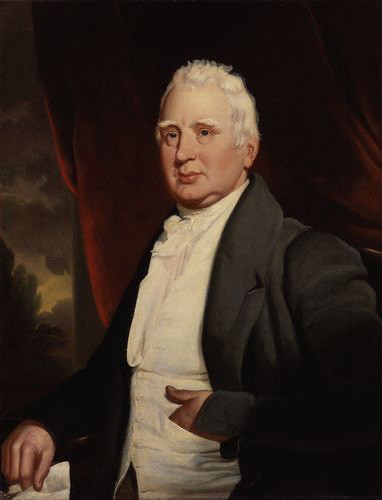You never know what you can do till you try.

"William Cobbett" was an English pamphleteer, farmer and journalist, who was born in Farnham, Surrey. He believed that reforming Parliament of Great Britain/Parliament and abolishing the rotten boroughs would help to end the poverty of farm labourers, and he attacked the borough-mongers, Sinecure/sinecurists and "tax-eaters" relentlessly. He was also against the Corn Laws, a tax on imported grain. Early in his career, he was a loyalist supporter of King and Country: but later he joined and successfully publicised the radical movement, which led to the Reform Act 1832/Reform Bill of 1832, and to his winning the parliamentary seat of Oldham (UK Parliament constituency)/Oldham. Although he was not a Catholic Church/Catholic, he became a fiery advocate of Catholic Emancipation in Britain. Through the seeming contradictions in Cobbett's life, his opposition to authority stayed constant. He wrote many polemics, on subjects from political reform to religion, but is best known for his book from 1830, Rural Rides, which is still in print today.
If you enjoy these quotes, be sure to check out other famous politicians! More William Cobbett on Wikipedia.Men fail much oftener from want of perseverance than from want of talent.
The tendency of taxation is to create a class of persons who do not labor, to take from those who do labor the produce of that labor, and to give it to those who do not labor.
It is by attempting to reach the top in a single leap that so much misery is caused in the world.
Nothing is so well calculated to produce a death-like torpor in the country as an extended system of taxation and a great national debt.
It is not the greatness of a man's means that makes him independent, so much as the smallness of his wants.
The Christian religion, then, is not an affair of preaching, or prating, or ranting, but of taking care of the bodies as well as the souls of people; not an affair of belief and of faith and of professions, but an affair of doing good, and especially to those who are in want; not an affair of fire and brimstone, but an affair of bacon and read, beer and a bed.
Women are a sisterhood. They make common cause in behalf of the sex; and, indeed, this is natural enough, when we consider the vast power that the law gives us over them.
Be you in what line of life you may, it will be amongst your misfortunes if you have not time properly to attend to pecuniary [monetary] matters. Want of attention to these matters has impeded the progress of science and of genius itself.
Grammar, perfectly understood, enables us not only to express our meaning fully and clearly, but so to express it as to enable us to defy the ingenuity of man to give to our words any other meaning than that which we ourselves intend them to express.
I view the tea-drinking as a destroyer of health, an enfeebler of the frome, an engender of effeminacy and laziness, a debaucher of youth and maker of misery for old age.
Copyright © 2024 Electric Goat Media. All Rights Reserved.